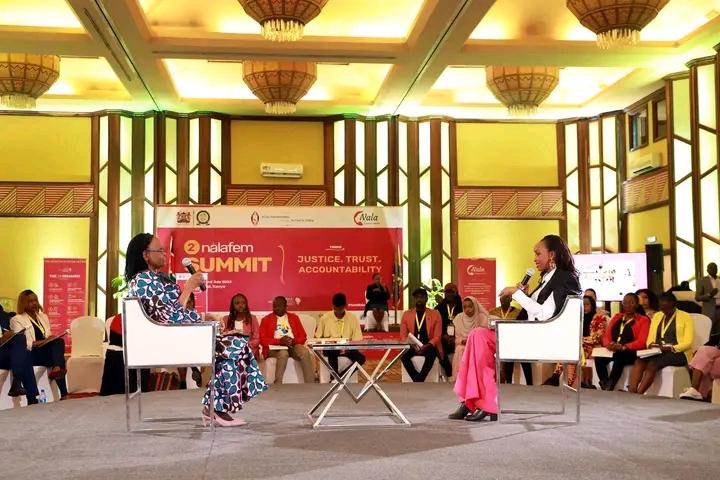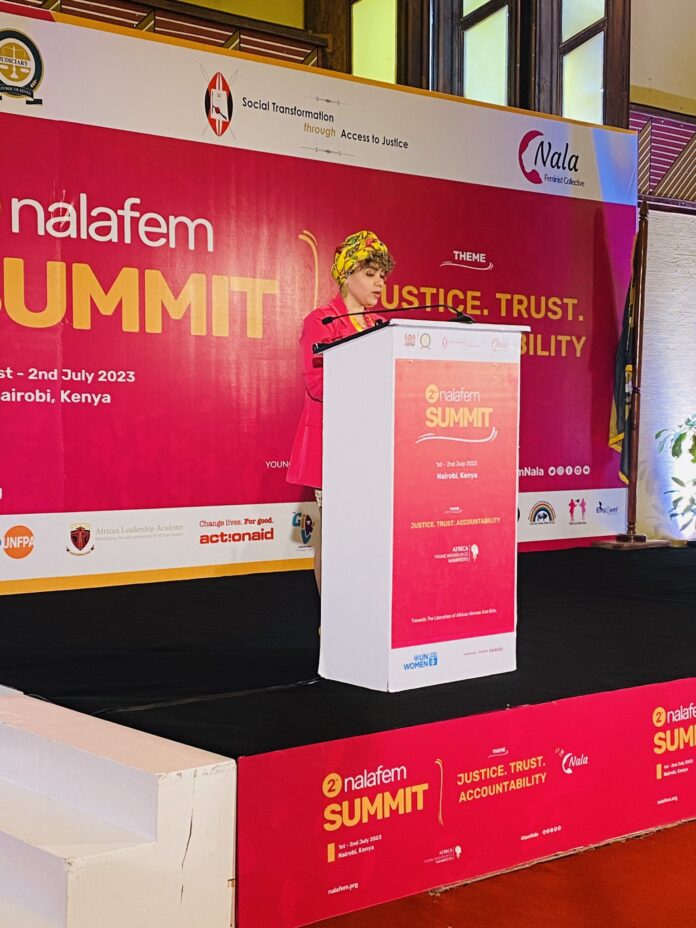|
Getting your Trinity Audio player ready...
|
By Lenah Bosibori
Nairobi, Kenya: The number of sexual and gender-based violence cases in Kenya has been on the rise according to the latest survey by the Kenya National Bureau of Statics (KNBS).
According to the recent survey by Kenya Demographics and Health Survey (KDHS) released on Monday, 43 percent of women in Kenya have experienced intimate-partner violence whether physical, sexual, or emotional an increase from 40.7 percent in 2014.
One survivor, Wangu Kanja is among the number of cases documented as she shared her story during a recent two-day Nalafem Summit in Nairobi that brought together the most influential policy-makers, politicians, and activists to take action together toward the liberation of African women and girls.
Kanja experienced a traumatic rape in 2002. Her courageous journey of resilience and determination led her to establish the Wangu Kanja Foundation, a beacon of hope for those who have suffered at the hands of their abusers.
She struggled to find ways to cope with the trauma that had deeply impacted her life. “I found solace in alcohol for two and a half years as a coping mechanism; I tried to cope with the unimaginable. But I emerged stronger, determined to reclaim my power and fight for a world free from gender-based violence,” Kanja added.

Kanja was speaking during the second Nalafem summit in Nairobi under the theme ‘Justice, Trust, and Accountability’. Nalafem is a Pan-African platform of women politicians and activists united towards feminist change.
The guest speaker Hon Justice Martha Koome Chief Justice and President of the Supreme Court of Kenya said that a lot of Partnerships, Multi Agency approaches, psychosocial support, and witness protection are the only support for the survivors.
“Gender-Based Violence survivors must be escorted to the hospital by a police officer if it is a male survivor with the male and if it is a female survivor with a female police officer and the officer should make sure that survivor has received shelter,” said Koome.
Kanja’s story is a testament to the strength that lies within survivors of gender-based violence. The trauma she endured left her grappling with unimaginable pain, forcing her to confront the darkness head-on.
In her battle for justice and healing, she discovered an alarming truth, while many survivors possess the resilience to overcome their traumatic experiences; they are often faced with the biggest challenge of lack of resources and support.
But instead of allowing her struggles to consume her, she emerged with a renewed determination to break the cycle of violence. Recognizing the urgent need for change, she channeled her resilience into founding the Wangu Kanja Foundation, a platform dedicated to empowering rape survivors and ensuring their voices are heard.
Kanja’s journey serves as a heartrending reminder that gender-based violence is not just an individual tragedy but a national crisis that demands immediate attention. The prevalence of such violence across communities is nothing short of a pandemic, silently eroding the fabric of society. “It is imperative that we acknowledge this reality and take collective action to address it,” adds Kanja.
Kanja urged governments in Africa to mobilize resources, engage in meaningful conversations, and provide survivors with the support they need. “By doing so, we can pave the way for a society where no one suffers in silence, where justice is not a distant dream, but a tangible reality,” added Kanja.
Justice Agnes Murgor JA President of the International Association of Women Judges in Kenya said that it is high time Kenya declare SGBV cases a pandemic.
“The number of cases is rising, it is about time we have our country declare SGBV a pandemic so that we can deal with it, right now governments across know how to deal with pandemics, if this is declared a pandemic it is easy to deal with it,” said Murgor.
According to Murgor , there are so many cases in court, many survivors are traumatized due to some perpetrators wanting them to remove the cases and settle outside court or withdraw, the reason we decided to have an SGBV court,” added Murgor.
Murgor urged the courts to be accountable for all the cases whether dropped or still in court to ensure that survivors get justice.
Dr Obiageli Katryn founder and chair School of Politics, Policy, and Governance (SPPG) said that people don’t even know the exact date, “we must tell the stories using data if we are forced to do a survey on GBV in organizations, the kind of data will push momentum for attention in all African countries,” said Dr. Katryn.
She applauded Kenya for her progress in the judiciary for opening SGBV courts.” GBV cases are most frequently underreported, less prosecuted leading to deaths, we need to talk about the number of times I commit the crime are part of institutions that are problem-solving,” added Katryn who is also an Economic and Policy Expert.
Aya Chebbi, the founder of Nalafem, expressed that the initial idea took shape and gained momentum with the support of donors. However, she emphasized the ongoing need for additional donors to further foster experimentation.
“When engaging with potential donors, they attentively listen and envision the long-term impact. It may take more than two years to reach the desired stage where ideas can be adequately funded and brought to fruition,” said Chebbi.














